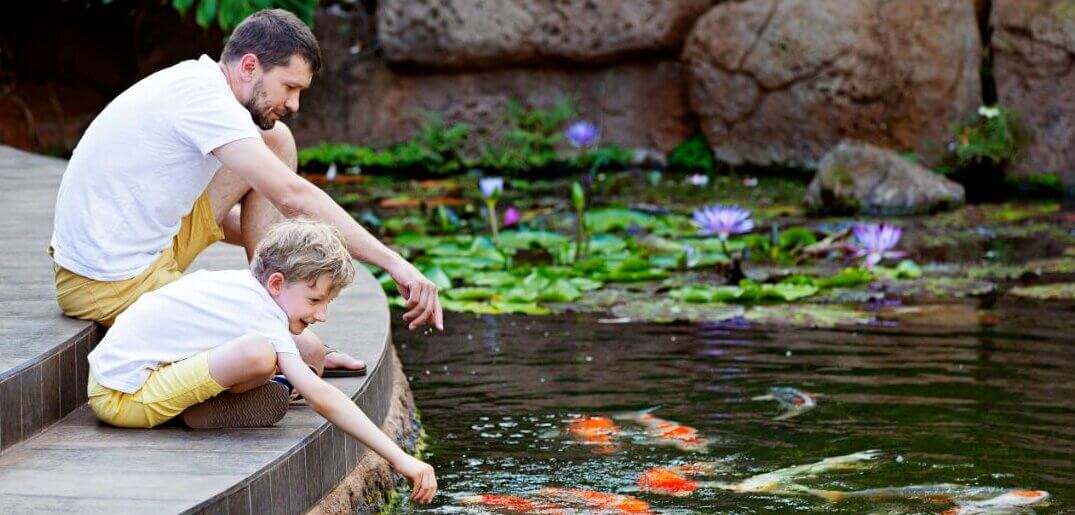Rain water is a controversial topic among koi owners. While some think it is good, others consider it a hazard. The truth is somewhere in between, and below are some reasons why this is the case.
Ways In Which Rain Benefit Koi Ponds
Rain provides a water supply that is natural and free of charge. This is excellent in areas that have metered water which is charged by a water company. The rain is also soft and free of chloramine and chlorine.
Based on the above benefits, every koi owner that lives in an area with lots of rain fall should immediately go out and buy the biggest water barrel they can find so they can start collecting rain as soon as possible, right? Not so fast. There are a number of things you should know about rain water.
Rainwater Is Not Pure H2O
This should be obvious, but rainwater is not pure. The reason is because it is the result of water which is evaporated from the surface and then drawn up into rain clouds. During this process, other substances which are dissolved might also accompany the water. Studies show that rain usually carries the gaseous pollutants which are present inside the atmosphere, which are the result of industrial activity.
As you can see, rain water quality and chemistry will vary greatly from one locale to another. Some rain has high levels of lead, and any area that has lots of industrial activity will almost inevitably have worse rain water than areas which are not industrial. Koi ponds which are located in close proximity to high traffic areas (such as a major highway or interstate) might also have poor quality rain due to the elevated traffic fumes. The same is true for ponds located near chemical plants, farms and even airports (airplanes emit fuels).
Some rain also contains sand. For example, parts of the UK and EU receive heavy rainfall that is mixed with sand due to wind blowing across Europe that comes all the way from the Sahara Desert in the northern part of Africa. Manmade disasters, such as the Chernobyl incident which occurred in Russia during the 1980s, adversely impacted the rain in regions as far away as England.
Always Test The Rainwater In Your Area
As you can see, the answer to the question of whether or not you should use rainwater in your koi pond depends on your jurisdiction. If you live in a rural area that is free of traffic and industrial activity, using rain water might be a good idea, but you should still test it to make sure.
The EPA (Environmental Protection Agency) recommends additional treatment for rainwater to ensure it is properly disinfected. Any impurities which are present will need to be filtered out. There are a number of hazardous things that might be present in rainwater, including inorganic, organic, acidic and even radioactive substances.


 Blog
Blog



